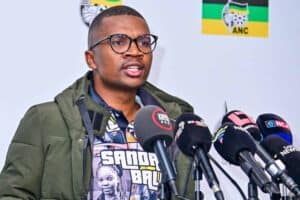Much of the BCMA and PAC philosophy has cynically been incorporated into the ANC’s world view – although unacknowledged and, in some cases, twisted to its own purposes.

Historian Padraig O’Malley summed it up well when he said the ANC was taken aback by the Soweto uprising in 1976; but it grabbed on to the “coattails of the revolution” with alacrity, “later claiming ownership of the entire coat”.
That, though, is not likely to be the story you will hear tomorrow from assorted ministers and ANC bigwigs as they commemorate one of the watershed moments in South African history.
Much as they did with another turning point – the Sharpeville massacre in March 1960 – those officiating at memorials will seek to glorify the nonexistent role the ANC played in the events of that day.
In particular, little attention will be paid to the critical part played by the students themselves, organised as they were by the Soweto Students’ Representative Council, whose action committee initiated the first marches to protest the use of the Afrikaans language as a teaching medium in black schools.
Even more important is the reality that, if any ideology permeated the uprising in Soweto – and the others which took place around the country at the same time – it was that of Black Consciousness, the philosophy espoused by Steve Biko and then the Black Consciousness Organisation of Azania (BCMA).
That ideology was so inimical to how the ANC saw its own vision that BCMA adherents became some of the first people targeted by the ANC in its campaign to eliminate political opponents.
Ironically, the ANC would not be the organisation it is today had it not been able to recruit thousands of students who fled South Africa in the wake of the uprising – and to take advantage of the political vacuum left by its successful war on its rivals.
For many years, the influence of BCMA was ignored by the ANC and written out of the history it trumpeted to the world, much as the role of the Pan Africanist Congress (PAC) and its founder, Robert Sobukwe, was airbrushed out of the ANC account of SA history.
That “editing” is understandable, given that the organisation’s exile leadership – who called many of the shots when they returned home in the early ’90s – had suckled at the teat of Soviet Stalinism.
Much of the BCMA and PAC philosophy has cynically been incorporated into the ANC’s world view – although unacknowledged and, in some cases, twisted to its own purposes.
The PAC’s spirit of pan-Africanism is often trotted out by the ANC to speak of continental unity. And Biko’s philosophy of “first love yourselves, black people” has, on occasion, been given the sort of racist twist Biko would never have countenanced, had he lived.
There are some worrying parallels between Soweto of June 1976 and South Africa, generally, in June 2021. People are unhappy with the way they are being treated – as evidenced by the eruption of service delivery protests this week around the country.
And, as in Soweto 45 years ago, the ANC leadership seems blissfully unaware of a building uprising.
While people want clean water, electricity and housing, the ANC leaders have looted billions from the government and parastatal coffers … money that could truly have built a better life for many of this country’s people.
But, worse than that, the hopes and dreams of that brave generation – which faced down apartheid’s guns – have been sold out.
-Editorial






